Try OP Manager now! There are numerous LAN monitoring software you can use to secure your local network as well as extended networks. Many of them are available for free. Let’s find out which is best for you!
How can I monitor LAN networks?
There are many systems for monitoring your LAN network. If you’re asking yourself what you check in LAN software, rest assured that we can help you with that. The vital parameters are, for example, the disk space, the percentage of processor usage, memory, and disk usage, network connectivity, etc. It’s easy to set alerts for all these settings in advance. In this manner, you’ll avoid space saturation and server blockages.
What to check when buying a LAN monitoring tool?
We will highlight the main features that you need to look for when getting a LAN monitoring tool:
Alerts – you should receive information about failures and stress from the monitor. Analysis tools – to explore the network. Customizations – in case you want to write your own scripts to automate reporting, the system should allow you to do that. Visualization – you need to be able to see the status of the overall network. Multi-vendor compatibility – the monitoring system and all your existing equipment should communicate.
In this post, we’ll list the most useful LAN monitoring software that you can use for your Windows computer network.
What is the best LAN monitoring software to use in 2022?
Site24x7 – Best LAN monitoring
ManageEngine OpManager – Complete network management
The backbone of every modern-day business is the way their networks function so that they can fulfill their duties appropriately, and because of this, a solid network monitoring tool like OpManager can be of help. This tool uses SNMP to automatically discover all the devices present within a provided IP range, or a whole network (LAN or WAN). You will be able to understand the network traffic behavior with extreme precision because Site24x7 analyzes the flows based on NetFlow, J-Flow, sFlow, CFlow, IPFIX, NetStream, and AppFlow technologies. This way, you will identify bandwidth hogs, intrusions, slowness, or unauthorized access easily. Then, simply customize your dashboards to generate reports on network security to get a clear picture of usage and traffic trends over certain periods of time. Site24x7 follows more than 60 performance metrics and after you configure threshold limits for all of them at the device and interface level, you will be able to take action and keep the network performance under control. The solution comes with a free trial version so you can test its features before buying so you should definitely give it a try. Take a look at Site24x7’s best features:
Built-in NetFlow, J-Flow, sFlow, CFlow, IPFIX, NetStream, and AppFlow technologies Analyzes more than 60 performance metrics Cloud-based application for easy management Apache, MySQL and Nagios plugin integrations Customizable dashboard
This software itself focuses on being easy-to-use and affordable, taking much of the work out of your network administrator’s hands, and providing automation wherever possible. It provides you with all the tools needed to monitor pretty much anything that has an IP that is connected to your network, from servers to routers and even printers. ManageEngine’s OpManager automatically discovers all the devices on your network and applies a template with the right metrics for its category. You can customize your own templates but it comes with more than 9.500 such templates and supports other 53,000 vendor templates. Another advantage is that OpManager has a cloud-based dashboard that can be accessed on any browser wherever you are in the world. Here are some of the core features that OpManager brings:
Real-time monitoring Virtual and physical server monitoring Dashboards that can be customized Affordability and intuitive use, and more
PRTG Network Monitoring – Simple implementation
You can easily keep track of your entire LAN and WAN networks with the PRTG Network Monitoring tool. It offers a very easy way to monitor all your workstations, routers, switches, and servers. Bandwidth can also be monitored if that is something you are looking for. The monitoring is done using various protocols including the popular SNMP. Packet Sniffing can be used to analyze individual data packets. If your network has Cisco devices, then NetFlow is available in PRTG to monitor those. Other great features of this tool:
Works with distributed networks using Remote Probes Mobile apps available for on-the-go monitoring Modular and extendable providing REST API sensor and Custom Notifications
Nagios – Great for network auditing
Nagios is a monitoring system that allows you to identify and resolve any IT infrastructure issues before they have any negative consequences. It is considered the de facto standard in network monitoring. And it’s true because it’s one of the first tools that did it right. Before Nagios there were others, but they were good only for specific tasks. SPONSORED The first version of Nagios is from the last century: 1999. Since the official launch, the technology has evolved: Nagios has done it through an ecosystem of add-ons or third-party add-ons that try to complement the features that are missing. Nagios is able to monitor network devices, systems, and services. Furthermore, the plugin system makes it versatile and adaptable to any monitoring requirement. It is also possible to write custom plugins. Let’s see some of its most important features:
Supports hundreds of third-party addons Set up alerts to notify you when potential threats arise Get all of your log data in one location Monitors routers, switches and more Effective application monitoring
⇒ Get Nagios
Zabbix – Good performance monitoring
Zabbix landed on the market in 2001. It is a fully developed tool, not a fork of Nagios. Its main characteristic is that it has a more holistic vision of monitoring, covering performance, not only states. In addition, it has a WEB management system that allows control in a centralized way, without cumbersome configuration files, as happened to Nagios. You will benefit from these core features:
Run the app locally or in the cloud Scalable to any infrastructure Native encryption support between all of the components Backed by 250+ global partners
⇒ Get Zabbix
Pandora FMS – Great for IoT monitoring
Pandora FMS was released in 2004. This is a monitoring framework that supports infrastructure monitoring (networks and servers), performance monitoring, and applications (APM) to transactional business monitoring (BAM). It has a centralized management system and is based on a SQL relational database. Like Nagios, it has an Enterprise version, but its OpenSource version is more than enough to implement any monitoring need. Neither Nagios nor Pandora FMS is limited versions like those of other manufacturers, but they lack some features oriented to large environments. Consider the best features of this tool:
Support for over 500 plugins Excellent for students and developers IoT monitoring A single platform to collect and display information
⇒ Get Pandora FMS
Comparing Zabbix, Nagios and Pandora FMS
User Configuration and Management
Zabbix has a web management interface that is centralized through the database, just like Pandora FMS does. Nagios, however, is still managed in thousands of sites through complex text files, scripts, and manual processes, which also make it necessary to use third-party tools for deployment. This has the advantage that Nagios needs fewer resources by not using a database to store information. The difficulty in management means that you have a team of people who manage Nagios.
Plugins and monitoring out of the box
Both Zabbix and Nagios need plugins in order to offer a set of complete functionalities. Zabbix lacks an official plugin library for the community, but it does have a list of OIDs for SNMP queries. Nagios has a huge library, but it’s not that well maintained. Pandora FMS has a smaller library than Nagios (it does not reach 500 plugins), but it is better maintained. The tool comes with a collection of plugins and modules ready to use. Zabbix has a powerful system for defining templates and triggers based on regular expressions. If you want to learn more about the differences between these three software tools, read this analysis published on the official Pandora FMS blog. This is our selection with the best LAN monitoring software for Windows 10/11 and we hope that you found the perfect tool for your needs. You may also be interested in our best server monitoring tools list because you will also find a lot of solutions for LAN monitoring too. Lastly, make sure you check out the best LAN emulator software that you can get to simulate online LAN play with your friends. If you’ve tested any of the LAN monitoring software choices listed above, you can tell us all about your experience in the comments section below.
SPONSORED
Name *
Email *
Commenting as . Not you?
Save information for future comments
Comment
Δ


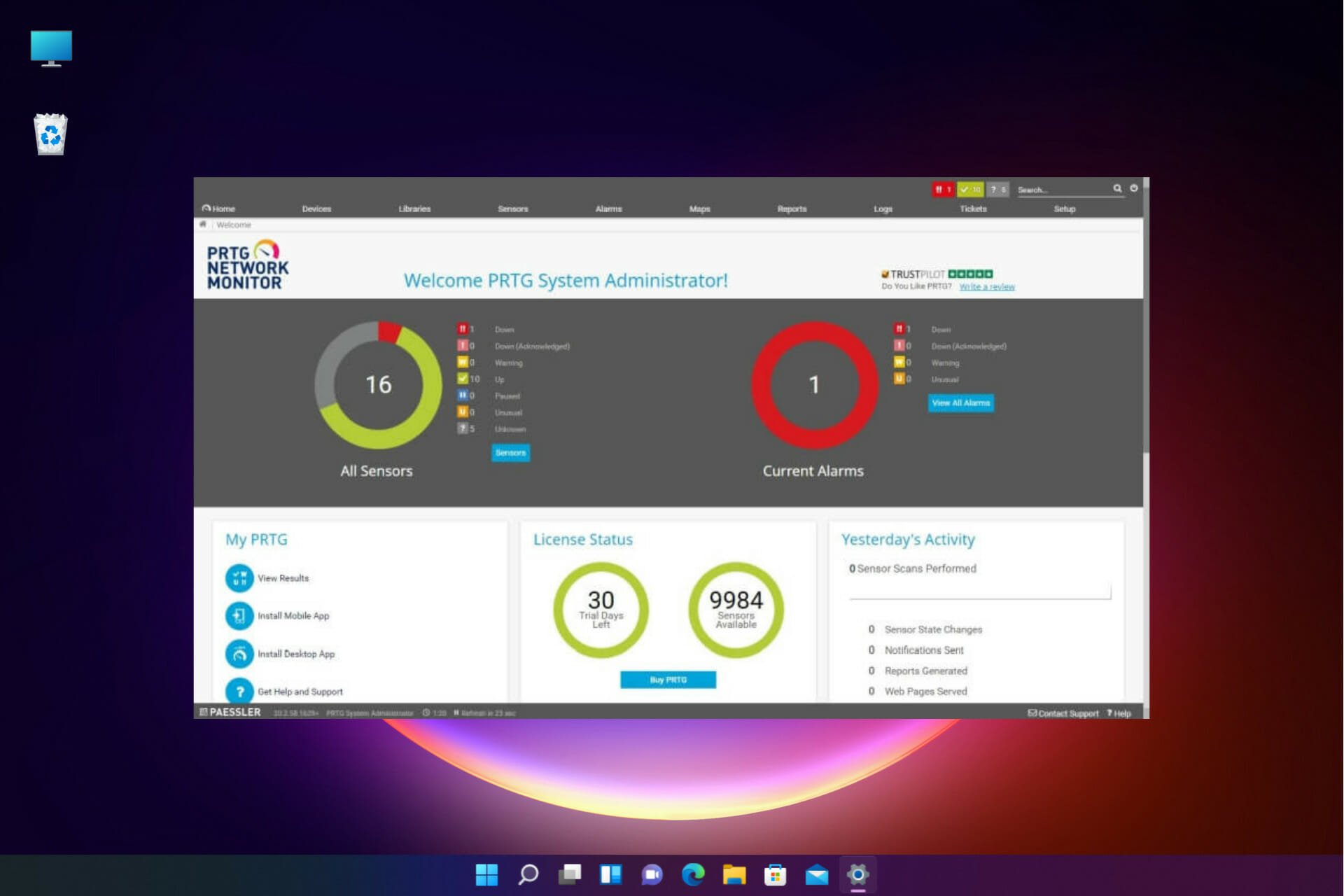


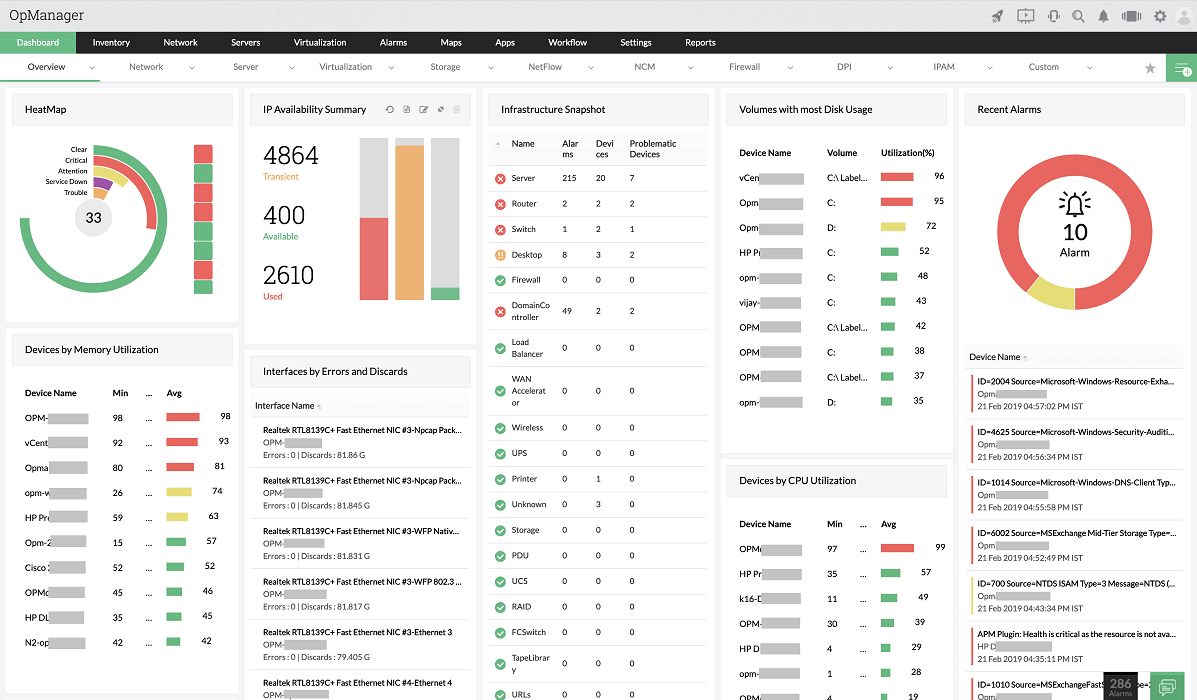

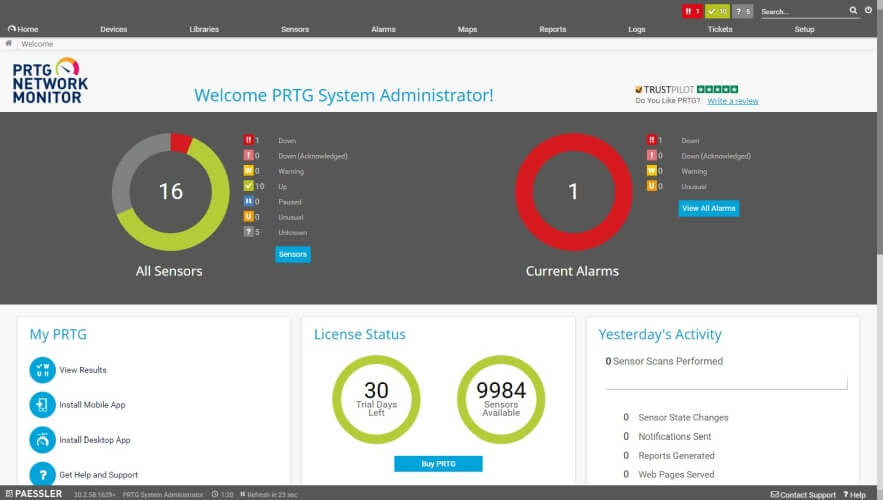
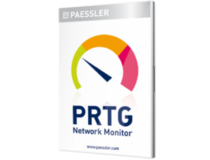

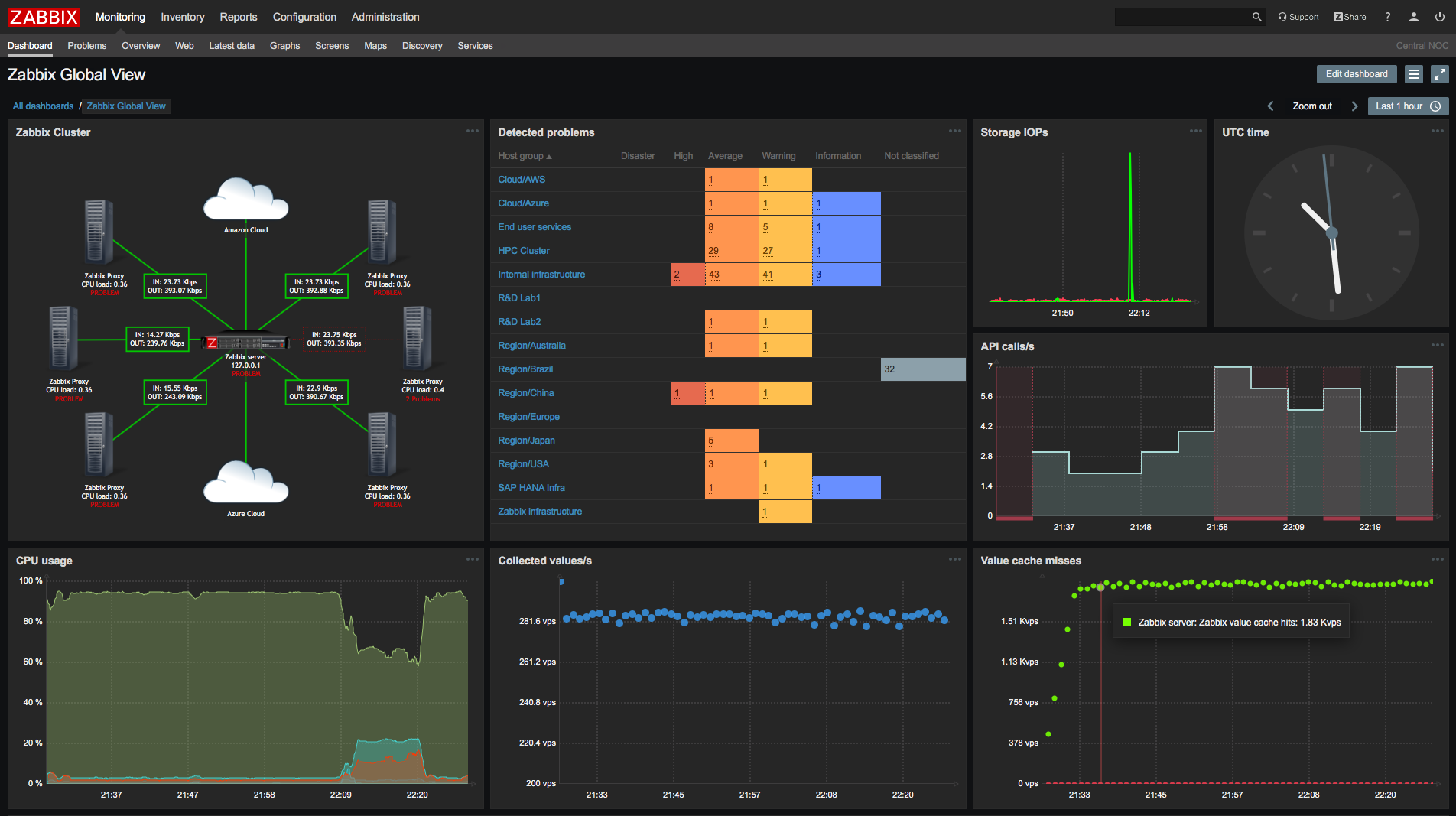

![]()